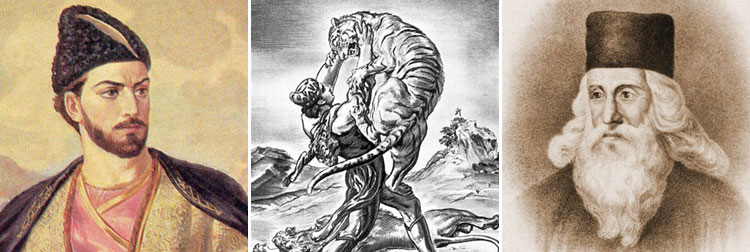
The first Georgian literary canons are relevant to the fifth century CE. This church literature of early Christianity depicts the lives of the martyrs and saints, and documents various treatises. Later, the folklore of myths and legends, heroes and didactic poems advanced.
The proliferation of Oriental (Persian, in particular) literature strongly influenced the development of Georgian literature. During the epoch of the early Middle Ages, epic tales of lyrical character, inspired by the creativity of Firdausi and other authors, appeared. The symbol of Georgian fiction is the epic poem “The Knight in the Tiger Skin” by Shota Rustaveli written in the 12th century.
Other significant contributions to the literary heritage of Georgia were made by Sulkhan-Saba Orbeliani, (author of the Georgian thesaurus), Elijah Chavchavadze, Alexander Kazbeg,i Acacias Tsereteli , Galacteon Tabidze (“The Moon of Mtatsminda” and “The Wind is Blowing”), and Constantine Gamsakhurdia ("The Right Hand") just to name a few.
Novels of Nodar Dumbadze, a great Georgian writer of twentieth century, tell of simple and wise men filled with folk humor and deep philosophy. Works of Dumbadze, "Me, Grandma, Iliko and Ilarioni", "The White Banners", and "The Law of Eternity" have been published in 94 languages.
Works of many poets and writers of Georgia were translated into Russian by many poets including Boris Pasternak and Eugenie Evtushenko.

